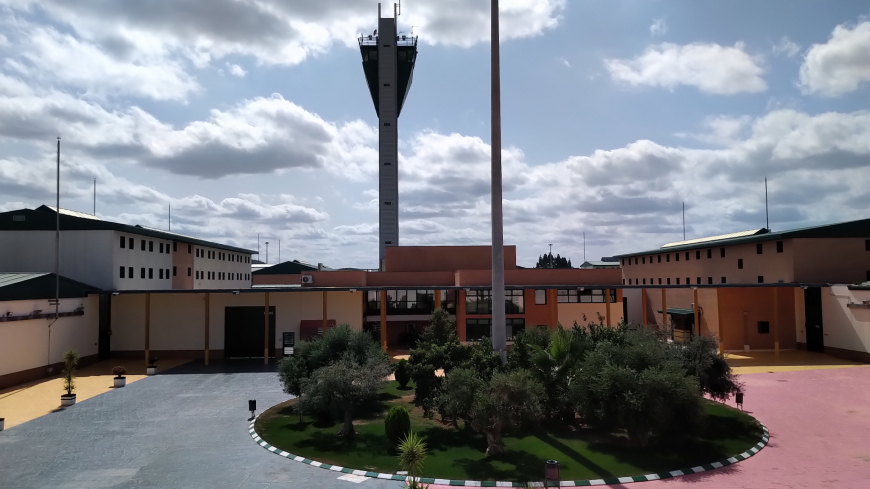The Council of Europe’s Committee for the Prevention of Torture and Inhuman or Degrading Treatment or Punishment (CPT) has published today the report on its periodic to Spain, which took place from 14 to 28 September 2020, together with the response of the Spanish authorities.
In the course of the visit, most persons met stated that they had been treated correctly by law enforcement officials. However, the CPT’s delegation did receive a significant number of allegations of ill-treatment which mainly concerned the Policía Nacional. The ill-treatment consisted of slaps, punches and kicks to the body and/or head as well as, on occasion, the use of batons or other objects. It was purportedly inflicted as a means to force persons to provide information or to confess to particular crimes or to punish them for the alleged crime committed. The Committee stresses the importance of proper oversight and training of law enforcement officers.
In the adult male prisons visited, the CPT’s delegation received a large number of consistent and credible allegations of recent physical ill-treatment by prison officers which consisted primarily of slaps to the head and body, punches, kicks and blows with batons. In a number of cases, the alleged ill-treatment was supported by injuries documented by the delegation or noted in the person’s medical record. The delegation also received several credible allegations of persons having the soles of their feet subjected to repeated baton blows; a torture method known as falaka (bastinado). The ill-treatment appears to be a disproportionate and punitive reaction to recalcitrant behaviour by prisoners. Tackling such behaviour requires more rigorous oversight by management, enhanced training of staff in the use of control and restraint and de-escalation techniques, the accurate documentation of all injuries and the immediate reporting of every allegation of ill-treatment to the competent prosecutorial authorities.
As regards the long-standing issue of mechanical fixation of a person to a bed, the report notes the considerable progress made across all prisons in Spain in reducing both the number and duration of applications of the measure. Nevertheless, the CPT considers that the goal should remain the abolition of this measure in prison as it is open to abuse. In the meantime, even stricter safeguards should be applied such as reducing its duration still further, improving the supervision of the measure, ending the fixation of mentally ill persons and of persons who self-harm. The practice of forcibly medicating fixated prisoners should also be terminated. The CPT also makes a number of recommendations on prisoner activities, health care and discipline.
As regards female prisoners, the report calls for a gender-specific approach taking into account the needs of women. Further, it states that more needs to be done to develop the range of non-gender stereo-typed activities on offer to women and to adopt a policy on preventing and reducing acts of self-harm of women and to ensure that such acts are always dealt with from a therapeutic standpoint.
The CPT is critical of the treatment and conditions offered to patients in the two Prison psychiatric Hospitals (PPH) of Alicante and Seville. The CPT considers that they should enjoy full institutional and functional separation from the prison service and be placed under the responsibility of the national health-care system. In parallel, there should be a paradigm shift in the treatment of forensic patients based upon the principles of individualized treatment and a move away from the current emphasis on pharmacotherapy. The CPT also found that the carceral design and austere setting of the PPHs is not conducive to a truly therapeutic approach.
At both hospitals, a few allegations of physical ill-treatment consisting of blows with rubber batons and of painful and improper mechanical fixation were received. In addition, the CPT is critical of the practice of prolonged periods of seclusion imposed on patients, lasting up to four months, without appropriate legal safeguards or adequate judicial review. Recommendations are also made to strengthen the legal safeguards surrounding the placement, discharge and involuntary treatment of forensic psychiatric patients at both PPHs.
At the Juvenile Detention Centre “La Marchenilla” in Algeciras, the CPT gained a positive impression of the caring attitude of staff and of the individual therapeutic and rehabilitation plans proposed for each resident. That said, several juveniles complained about the rough behaviour of the security staff in physically restraining them. The CPT also found that juveniles continued to be subjected to prolonged periods of mechanical fixation and to be forcibly injected with medication while fixated. The CPT again calls upon the Spanish authorities to abolish the mechanical fixation of juveniles at the national level.
In their response to the CPT’s report, the Spanish authorities engage in a constructive and substantive dialogue. Information is provided on the action taken in prison to tackle ill-treatment by staff in prisons and to bolster internal oversight as well as on the steps taken to reduce the number of persons placed in closed-regime modules and to limit the resort to the measure of mechanical fixation. In addition, the response provides information on the adoption of a gender perspective in prisons. The Spanish authorities also concur with the CPT that the PPHs should be transferred under the responsibility of the national health-authorities in order to provide for a more appropriate therapeutic environment. Finally, as regards the Juvenile Detention Centre, action is being taken to implement the various recommendations, notably as concerns the steps taken to reduce and abolish the practice of fixation of children in the Centros de Menores throughout Spain.
- Read the report in English, in Spanish
- Read the executive summary in English, in Spanish
- Read the response in English, in Spanish
- The CPT and Spain




